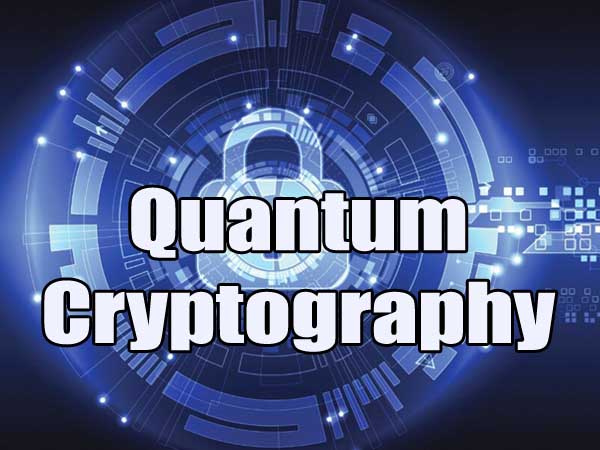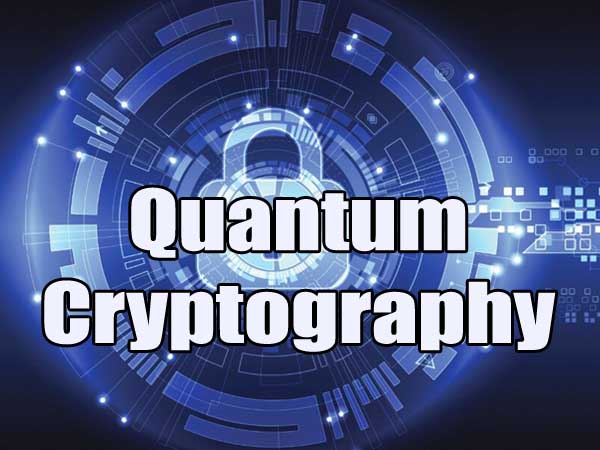Quantum Cryptography : Amazing Technology of Communication

quantum encryption, nist post quantum cryptography, post quantum encryption, quantum key encryption, quantum computing encryption, quantum proof encryption, quantum resistant encryption, quantum resistant algorithms
Welcome to the magical world of quantum cryptography, where amazing things happen with secret codes! Imagine a place where messages are protected by codes that nobody can crack, and if someone tries to listen in, an alarm goes off right away. Get ready to discover the secrets of quantum entanglement, quantum superposition, and quantum key distribution—these are the special tricks that make quantum cryptography so special. It’s like going on a thrilling adventure where tiny particles do special dances and make sure our secrets are safe. So, get ready for an incredible journey through quantum cryptography, where anything is possible and science is full of surprises!
Introduction
In today’s digital age, where data privacy and security are most important, traditional cryptographic methods face increasing challenges. Enter quantum cryptography, a cutting-edge field that uses the power of quantum mechanics to provide unbreakable encryption. In this article, we will demystify the concept of quantum cryptography and explore its significance in safeguarding sensitive information. Whether you’re a curious beginner or an enthusiast eager to dive deeper, join us on this journey to understand the fascinating world of quantum cryptography.
The Basics of Quantum Cryptography
Quantum cryptography leverages the principles of quantum mechanics to secure communication channels. Unlike classical cryptography, which relies on mathematical algorithms, quantum cryptography utilizes the inherent properties of quantum particles, such as photons, to create an unbreakable code. The fundamental principle behind this technology is the uncertainty principle, which states that any attempt to observe or measure a quantum system will perturb it, making eavesdropping detectable.
Quantum Key Distribution (QKD)
One of the central concepts in quantum cryptography is Quantum Key Distribution (QKD). QKD enables two parties, let’s say Alice and Bob, to establish a secret encryption key securely. Through the transmission of entangled photons, Alice and Bob can detect any attempts made by an eavesdropper, often referred to as Eve, to intercept or manipulate the key. This guarantees that the key exchange remains secure and immune to hacking attempts.
Quantum Entanglement
Quantum entanglement plays a crucial role in quantum cryptography. Entanglement is a phenomenon where two or more quantum particles become correlated in such a way that the state of one particle is instantly linked to the state of the other, regardless of the distance between them. By utilizing entangled particles, such as entangled photons, quantum cryptography ensures that any attempt to intercept the key will disrupt the entanglement, alerting the communicating parties.
Advantages and Limitations of Quantum Cryptography
The advantages of quantum cryptography are numerous. Firstly, it offers provable security, as any attempt to intercept or tamper with the communication can be detected. Secondly, it provides long-term security, as breaking the encryption requires violating the laws of quantum mechanics, which are believed to be unbreakable. However, quantum cryptography also has limitations, including the requirement for specialized equipment and the need for a dedicated quantum communication infrastructure.
Real-World Applications
Quantum cryptography holds immense potential for various real-world applications. It can secure sensitive government communications, protect financial transactions, and ensure the integrity of critical infrastructure, such as power grids and healthcare systems. Quantum cryptography is also being explored for securing data transmission in emerging technologies like the Internet of Things (IoT) and 5G networks.
Conclusion
Quantum cryptography represents a paradigm shift in the field of data security. By harnessing the extraordinary properties of quantum mechanics, it offers a level of protection that traditional cryptographic methods cannot achieve. While quantum cryptography is still an evolving field, its potential to revolutionize secure communication is undeniable. As we move towards an increasingly interconnected world, understanding the principles and applications of quantum cryptography will be crucial in safeguarding sensitive information and securing the future of communication.
Remember, the world of quantum cryptography is vast and ever-evolving, but this article has provided you with a solid foundation to explore further and delve into its intricacies. Stay curious and embrace the exciting possibilities that quantum cryptography brings to the realm of data security.
FAQs
Here are some frequently asked questions (FAQs) about Quantum Cryptography. This will help you to clear doubts.
1. What is quantum cryptography?
Quantum cryptography is a branch of cryptography that utilizes the principles of quantum mechanics to secure communication channels. It uses the unique properties of quantum particles, such as photons, to create an unbreakable code and ensure the confidentiality and integrity of data transmission.
2. How does quantum cryptography ensure security?
Quantum cryptography ensures security through the principles of quantum mechanics. By leveraging properties like the uncertainty principle and quantum entanglement, it enables the detection of any eavesdropping attempts. Any interception or tampering with the communication disrupts the quantum state, alerting the communicating parties.
3. What is Quantum Key Distribution (QKD)?
Quantum Key Distribution (QKD) is a key component of quantum cryptography. It is a secure method for exchanging encryption keys between two parties over an insecure channel. QKD utilizes the transmission of quantum particles, typically entangled photons, to establish a shared secret key that cannot be intercepted without detection.
4. Can quantum cryptography be hacked or broken?
Quantum cryptography provides provable security against any attack that violates the laws of quantum mechanics. However, like any technology, it is not completely immune to vulnerabilities. While hacking quantum cryptography is highly challenging, potential weaknesses may exist in the implementation, the devices used, or the communication infrastructure.
5. Is quantum cryptography practical for everyday use?
Quantum cryptography is still a rapidly advancing field and faces practical challenges for widespread implementation. It requires specialized equipment and dedicated quantum communication infrastructure. However, with advancements in technology and research, efforts are being made to make quantum cryptography more practical and accessible for everyday use.
6. What are the real-world applications of quantum cryptography?
Quantum cryptography has applications in various domains. It can secure government and military communications, protect financial transactions and banking systems, and ensure the integrity of critical infrastructure. It is also being explored for securing data transmission in emerging technologies like the Internet of Things (IoT) and 5G networks.
7. How does quantum cryptography differ from traditional cryptography?
Traditional cryptography relies on mathematical algorithms, while quantum cryptography utilizes the principles of quantum mechanics. Quantum cryptography offers a higher level of security, as it is based on fundamental physical properties and is resistant to hacking techniques that exploit computational vulnerabilities.
8. Is quantum cryptography immune to attacks from quantum computers?
While quantum cryptography provides strong security against classical hacking techniques, it may be vulnerable to attacks from powerful quantum computers. As quantum computers advance, they could potentially break certain quantum cryptographic protocols. However, research is ongoing to develop quantum-resistant encryption methods that can withstand attacks from quantum computers.
9. How is quantum cryptography different from quantum computing?
Quantum cryptography focuses on securing communication channels using the principles of quantum mechanics, while quantum computing involves using quantum systems to perform complex computations. While they both rely on quantum mechanics, their objectives and applications are distinct.
10. Can quantum cryptography be implemented over long distances?
Yes, quantum cryptography can be implemented over long distances through the use of quantum repeaters. These devices help extend the range of secure communication by amplifying and relaying quantum signals. Research is ongoing to develop efficient and practical quantum repeater technologies.
11. What are the challenges of implementing quantum cryptography?
Implementing quantum cryptography faces several challenges. One significant challenge is the need for specialized and sensitive equipment that can operate at extremely low temperatures. Another challenge is the requirement for a secure and reliable quantum key distribution infrastructure, which may require significant investment and infrastructure development.
12. Can quantum cryptography be used for securing cloud computing?
Yes, quantum cryptography can be used to enhance the security of cloud computing. By implementing quantum-resistant encryption and secure key distribution mechanisms, quantum cryptography can protect sensitive data stored and processed in cloud environments.
13. Are there any international standards for quantum cryptography?
Currently, there are ongoing efforts to develop international standards for quantum cryptography. Organizations such as the National Institute of Standards and Technology (NIST) are actively working on standardizing post-quantum cryptographic algorithms to ensure secure communication in the era of quantum computers.
14. How can individuals and organizations prepare for the era of quantum cryptography?
To prepare for the era of quantum cryptography, individuals and organizations can stay informed about advancements in the field and the development of quantum-resistant encryption algorithms. They can also work with experts in the field to assess their current security infrastructure and implement measures to enhance their resilience against potential quantum attacks.
15. What is quantum encryption?
Quantum encryption, also known as quantum cryptography, is a highly secure method of protecting information. It uses the principles of quantum mechanics, a branch of physics that deals with tiny particles, to ensure that messages are transmitted in a way that cannot be intercepted or decoded by unauthorized individuals.
16. What is NIST post Quantum Cryptography?
NIST Post-Quantum Cryptography (PQC) is a project by NIST (National Institute of Standards and Technology) that aims to create new ways of keeping information safe from super-strong quantum computers. Quantum computers have the ability to crack many of the encryption methods we use today, so it’s important to develop new algorithms that can protect against these attacks. NIST PQC brings together experts to come up with innovative cryptographic algorithms that can resist the power of quantum computers and keep our data secure in the future.
17. What is post quantum encryption?
Post-quantum encryption, also known as post-quantum cryptography (PQC), is a type of encryption designed to withstand attacks from powerful quantum computers. Traditional encryption methods rely on mathematical algorithms that can be broken by quantum computers, posing a potential threat to the security of sensitive information.
Remember, quantum cryptography is a rapidly evolving field, and new questions and challenges continue to emerge. Stay curious and keep up with the latest research and developments to stay informed about the exciting possibilities and implications of this technology.
It is a revolutionary field that holds immense potential for transforming the way we secure our communications and protect sensitive information. As we delve deeper into the quantum realm, exploring the fascinating properties of quantum particles and harnessing their unique characteristics, we open doors to unprecedented levels of security and privacy. The impact of Quantum Cryptography extends beyond the realm of theory, with real-world applications emerging in various industries.
We invite you, dear readers, to share your thoughts, insights, and experiences regarding Quantum Cryptography. What are your perspectives on its potential? How do you envision its role in shaping the future of cybersecurity? We encourage you to leave your comments and engage in a fruitful discussion, as together, we navigate the frontiers of this remarkable field. Your contributions are valuable in furthering our understanding and expanding the horizons of Quantum Cryptography. Let’s embark on this journey together and unlock the secrets of quantum security.
Source
Related Searches
